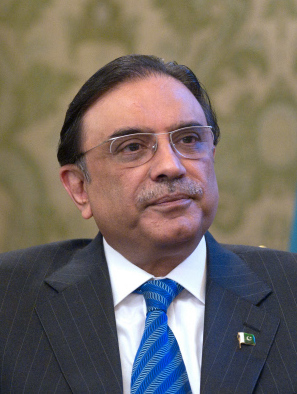President Asif Ali Zardari advocates for comprehensive tax policies targeting large landowners during a seminar in Lahore
President Asif Ali Zardari delivered a keynote address at a seminar in Lahore, outlining the government’s strategy to bolster Pakistan’s economic development through prudent financial policies. Speaking passionately, Zardari highlighted the importance of adopting a holistic approach to taxation, particularly targeting agricultural income as mandated by the International Monetary Fund (IMF). He revealed that provincial governments would take the lead in implementing taxes on large land-holding farmers, aligning these levies with the profitability and expenditures of these agricultural entities.
Emphasizing the significance of agro-farming and agro-industry for Pakistan’s future, Zardari underscored the necessity of imposing taxes on big landowners to ensure equitable economic policies. The president’s remarks aimed to address economic inequalities and stimulate growth in rural areas heavily reliant on agriculture.
Embed from Getty ImagesIn addition to economic policies, Zardari addressed the media scrutiny he faces, acknowledging widespread criticism in the electronic media. Despite not watching television himself, he acknowledged the uniqueness of the scrutiny directed at him, attributing it to a form of spiritual reward. Zardari affirmed his support for press freedom but cautioned against media agendas that could potentially divide societal cohesion.
Highlighting the influence of social media in today’s global landscape, Zardari recognized its role in amplifying public voices but also cautioned against the propagation of agenda-driven information. He warned that such dissemination could undermine societal unity and perpetuate misinformation.
The seminar, attended by government officials, policymakers, and academics, served as a platform for discussing Pakistan’s economic future and the role of taxation in fostering sustainable development. Zardari’s proposals signaled a proactive stance towards economic reform, aiming to align Pakistan’s fiscal policies with international standards while addressing domestic economic disparities.
Analysis:
Political Perspective: President Zardari’s call for holistic tax reforms reflects broader political strategies aimed at enhancing economic governance and transparency. By aligning Pakistan’s tax policies with IMF conditions, Zardari aims to strengthen international credibility and potentially attract foreign investment. However, the implementation of such reforms could face resistance from powerful agricultural lobbies and provincial governments, potentially affecting political dynamics within the country.
Social Perspective: The proposed tax reforms have social implications, particularly in addressing economic inequalities between large landowners and rural communities dependent on agriculture. By taxing big landholders based on profitability, Zardari’s policies could redistribute wealth and promote social equity. However, opposition from vested interests and challenges in enforcement may hinder the equitable distribution of economic benefits.
Economic Perspective: From an economic standpoint, Zardari’s emphasis on taxing agricultural income seeks to diversify Pakistan’s revenue sources beyond traditional sectors. By encouraging taxation of profitable agricultural enterprises, the government aims to boost revenue streams for public infrastructure and services. Successful implementation could potentially enhance economic stability and reduce dependency on external financial aid.
